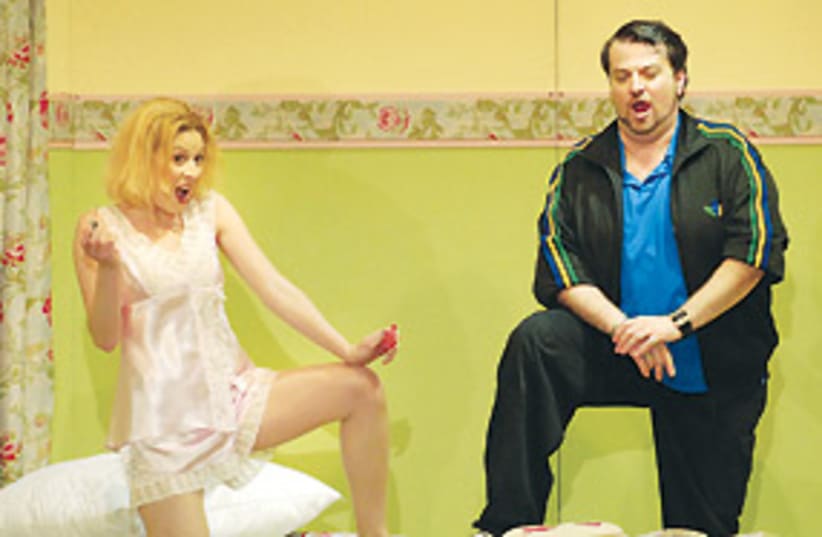The Israeli Opera
March 14
Rossini’s comic opera The Barber of Seville, directed by Marianne Clement at the Israeli Opera, was successfully transformed into a farce.It was fairly amusing. Whether it was also in good taste is a question best left to this French director’s approach to the maxim chacun a son gout – “each one according to his own taste.” Presenting Dr. Bartolo as a dentist served no other purpose than to demonstrate the director’s untamable quest for originality and modernity. Why a dentist, of all things, and not a gynecologist or a neurologist, remained an open question. Some ideas were indeed quite funny, such as the lead heroes emerging from two garbage cans. As time wore on, however, the never-ending forced sophisticated witticisms accumulated to an increasingly fatiguing effect. Rossini’s own intentions, whether real or supposed, seemed to have been a marginal consideration.The performance’s hero was Olivier Grand in the title role. Not only did he display a formidable, impressive, resounding baritone, but his natural comic talent also made him an outstanding actor. Already in his opening aria, Largo il factotum, he strayed from convention by placing significant accents on words that required them and shaping phrases meaningfully and intelligently.As Almaviva, Juan Jose Lopera’s appealing and soft-sung lyric tenor made him a credible lover. What his somewhat weak tenor lacked in strength was compensated by his suggestive final love scene with Rosina, which left almost nothing to imagination, much to the audience’s pleasure.Hen Reiss, as Rosina, made a courageous attempt, by her exhibitionistcosmetics, to distract the audience’s attention effectively from herradiant, bright soprano and acrobatic coloraturas to herattention-deserving, generously presented legs.Lionel Peintre’s forcefully resounding baritone and aggressive acting,in the role of Dr. Bartolo, made him come off as more of a youthfulmacho rather than the dirty old man that Rossini seemed to have had inmind. As Don Basilio, Ugo Guaghliardo’s bass sounded appropriatelydark, but in his Calumny ariastayed most of the time on a constant level, without nuances ofdynamics that could have described the gradually forming storm.Conductor George Pehlivanian adopted a brisk, invigorating tempo rightform the start and elicited abundant unconventional subtle nuances andwell-polished instrumental soli from the Israel Symphony OrchestraRishon Lezion.
